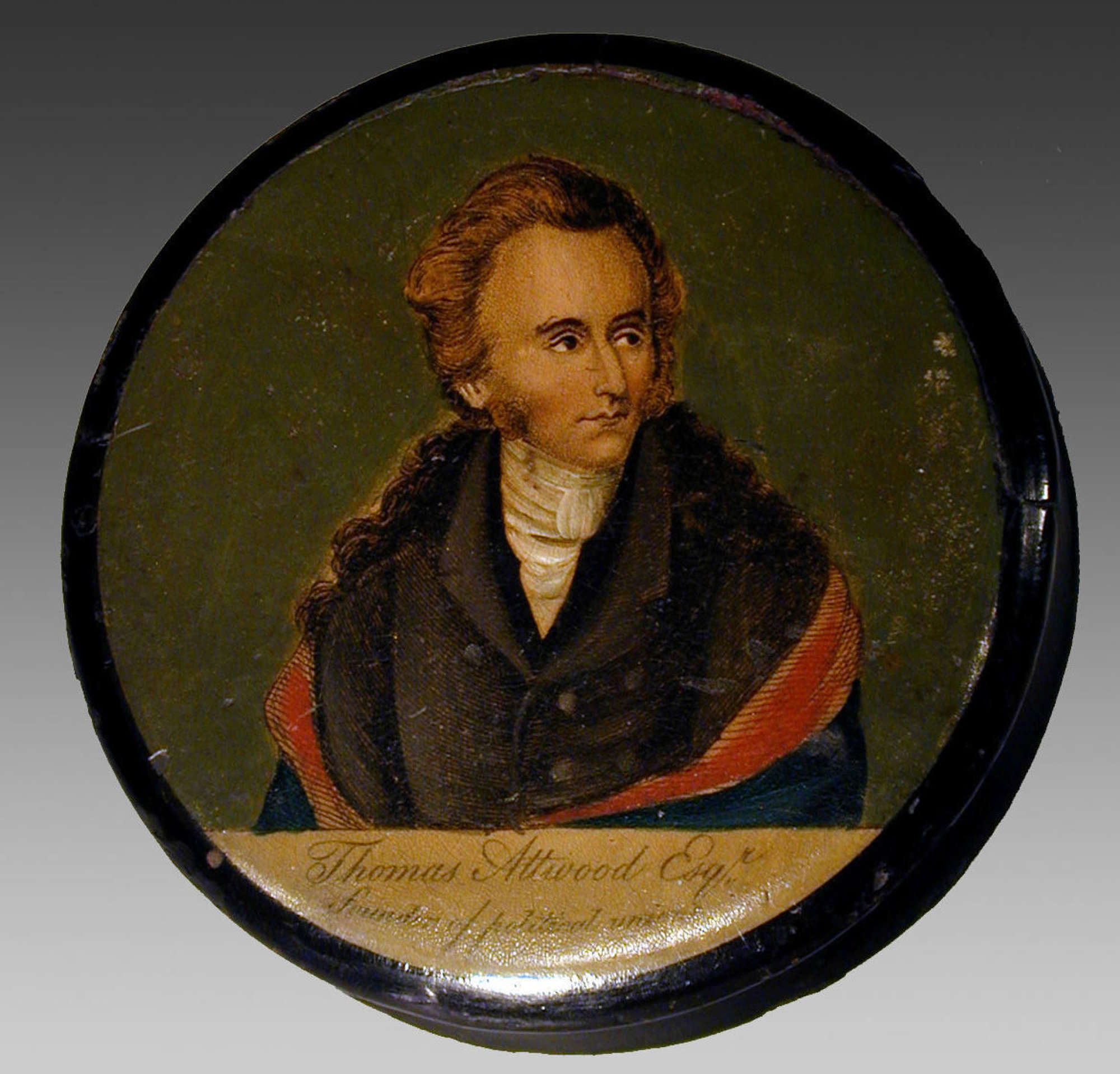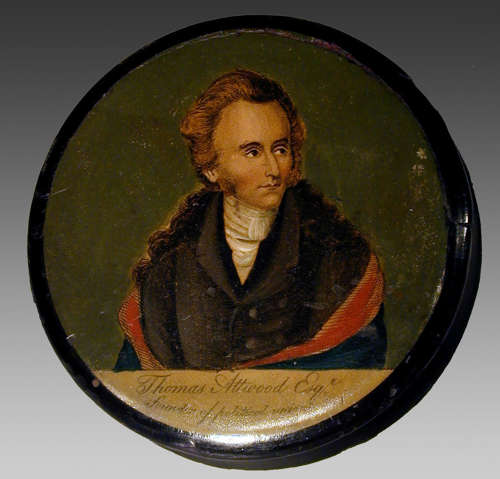

19th century papier-mȃché snuff or bonbonnier box
SOLD
Although this item has been sold, we have a range of similar items that may be of interest to you.
View similar items
Delivery Quote Request
Please fill in the form below to request a delivery quote from Baggott Church Street Ltd.
Contact Baggott Church Street Ltd
 Gloucestershire, United Kingdom
Gloucestershire, United Kingdom
Simply fill in the below form to get in touch with Baggott Church Street Ltd regarding this item.
About this item
19th century papier-mȃché snuff or bonbonnerie box with applied hand coloured print of Thomas Attwood in black coat and white cravat and wearing a ceremonial robe of navy and red. Inscribed: Thomas Attwood Esq. founder of political unions.
English, circa 1830-1835
Thomas Attwood (1783 - 1856)
Born at Hawne House, Halesowen, in 1783, Thomas Attwood was a gifted and intelligent man, dubbed in his own time as ‘the very first economist of the age’. He started work in his father’s bank, Attwoods, Spooner, Goddington & Co, in Birmingham. In 1811 he was appointed high bailiff of Birmingham, which subsequently led to his representing Birmingham in two issues of vital importance, both concerning matters of trade which were damaging the city’s economy.
The first concerned the Orders on Council which banned trade with French territories in response to Napoleon’s Berlin Decree which had ushered in the Continental System. Their orders led to retaliatory action by the Americans, which then destroyed Birmingham’s lucrative American Trade. The second issue concerned the East India Company which had a monopoly on trade with the Far East. Thomas Attwood led a delegation which gave evidence to the House of Commons committee where he proved an impressive witness. To the relief of Birmingham’s manufacturers, the Orders in Council were revoked in 1812 and the East India Company’s monopoly was restricted. Attwood became an overnight hero in Birmingham.
In his quest for major parliamentary reform, Attwood formed the Birmingham Political Union in 1830, thus beginning the foundation for political unions in Britain.
Additional Information
9906 (AB-14360)
Di: 3.8" (9.7 cm)
19th Century
![]() Gloucestershire, United Kingdom
Gloucestershire, United Kingdom










